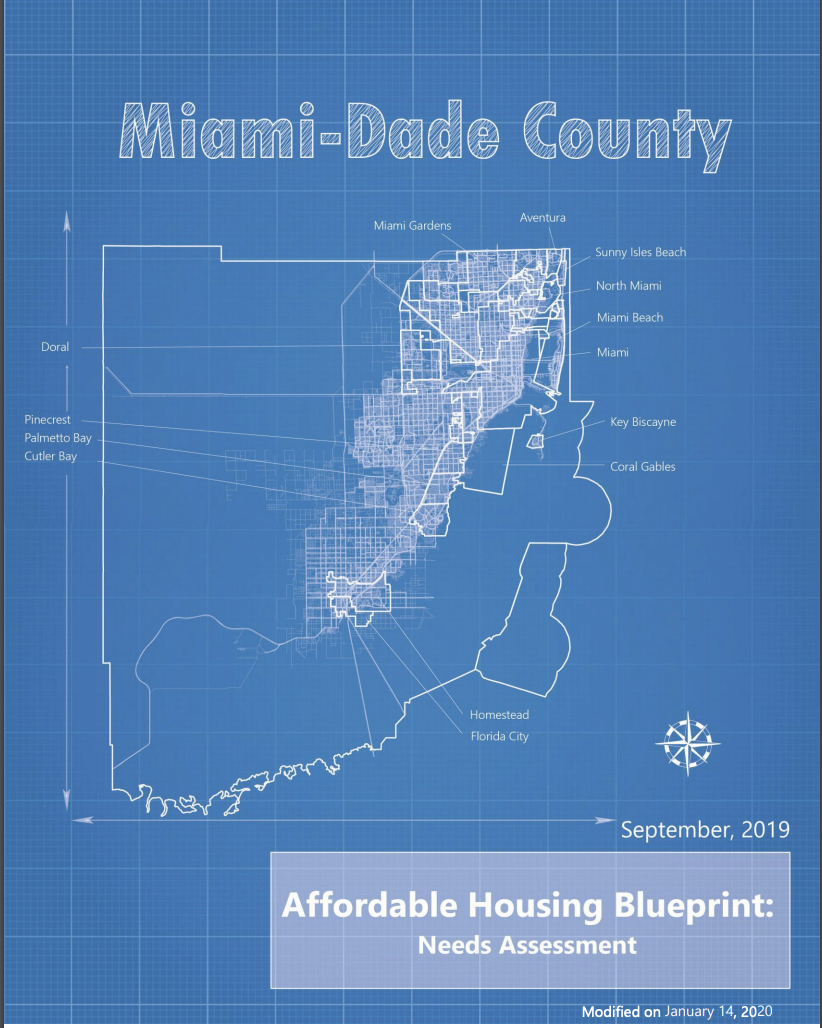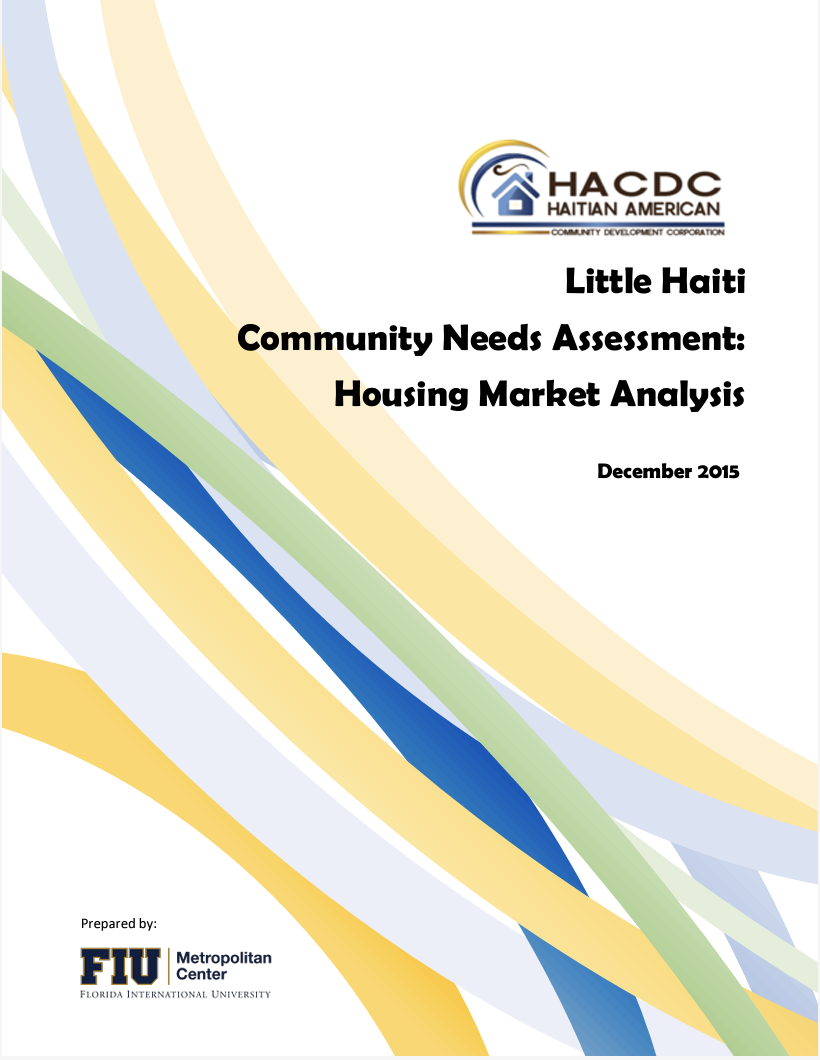Target 11.1
By 2030, ensure access for all to adequate, safe and affordable housing and basic services and upgrade slums

FIU Metropolitan Center
FIU’s Metropolitan Center provides technical services to communities in the areas of economic development, housing, transportation, and land use planning. Center researchers take into account the unique needs of individual communities while adhering to recognized methodologies for data analysis and reporting. The center houses the ongoing South Florida Regional Database Project, which includes asset mapping, best practice research, and full in-house Remote Sensing and Geographic Information Systems capabilities. The center is a Census Information Center (CIS), which allows for early access to release data and data with restricted use.

Miami-Dade County Affordable Housing Needs Assessment
The FIU Metropolitan Center’s Miami-Dade County Affordable Housing Needs Assessment provides a current market perspective on the key demand and supply factors impacting the production and availability of affordable housing in Miami-Dade County and its municipalities. The insight provided by this research provides policymakers and the public with a detailed background on these key market factors and conditions through a data-driven platform upon which the policy recommendations of the subsequent Miami-Dade County Affordable Housing Blueprint can be implemented on both a short- and long-term basis. The Needs Assessment has been written to help expand the terms of the housing debate — to recognize that affordable housing is also critical to Miami-Dade County’s economic resilience and the quality of life of its residents.

Little Haiti Community Needs Assessment
The FIU Metropolitan’s Center’s Little Haiti Housing Needs Assessment provides a current market perspective on the key demand and supply factors impacting the production and availability of affordable housing in the Little Haiti Neighborhood of Miami. A basic premise of all housing markets is the need to create and maintain a spectrum of housing choice and opportunity for local residents. This axiom establishes that housing choice and needs differ in most communities due to a variety of factors including: household income, population age, proximity of employment and mere preference. A spectrum of owner and rental housing choice and opportunity is particularly important in supporting the range of income groups that reside in the city. An understanding of the shifting demands for housing is critical for the creation of effective housing policies and strategies. The increasing demand for worker housing has magnified the importance of providing a wide spectrum of owner and renter choice and opportunity with respect to affordability, location and access to jobs.

Beracha, Hardin and Johnson Housing Affordability Index
The Beracha, Hardin and Johnson Housing Affordability Index, published quarterly by the FIU College of Business’s Hollo School of Real Estate, measures the affordability of residential properties in Miami-Dade, Broward and Palm Beach counties. The findings are based on average property prices relative to median household income in each county, as well as average mortgage payments as a percentage of income. Income data comes from the Federal Reserve. The index provides an overall health assessment of the current housing market and provides valuable insight for home sellers and buyers in South Florida.

REact Real Estate Conference
Annually, the FIU College of Business’s Hollo School of Real Estate hosts the REact Real Estate Conference, which focuses on how the public and private sectors are working together to promote the sustainable growth of the South Florida real estate and hospitality industries which also enhancing a sense of community. A favorable business environment and the diffusion of remote work have converged to turbo-charge certain real estate and technology investment trends that were already manifesting in Miami prior to the COVID-19 pandemic. Growth has exploded in Miami as it has become home to an ever-expanding roster of renowned hedge-funds, family-offices, private equity, and high profile PropTech and FinTech firms. Yet, growth has its challenges. The conference focuses on managing growth and preserving community.

FIU Jerome Bain Real Estate Institute
Research supported by the FIU's Jerome Bain Real Estate Institute is both theoretical and applied with a strong focus on solving current industry problems. The institute works with the globally recognized faculty in FIU's College of Business to provide meaningful analysis and research. The real estate faculty’s research is published in the highest levels of academic journals and this research is recognized on the global stage.